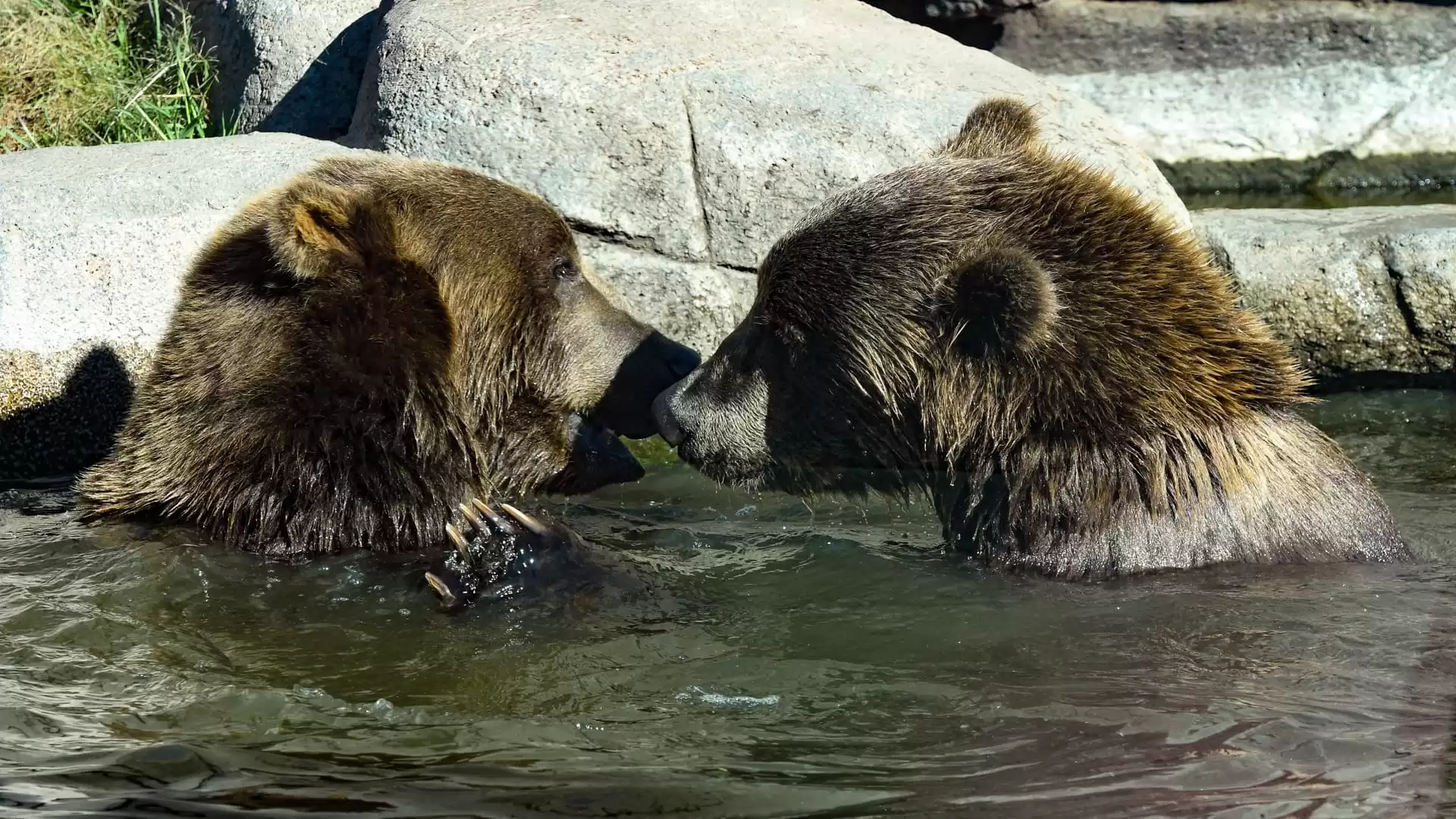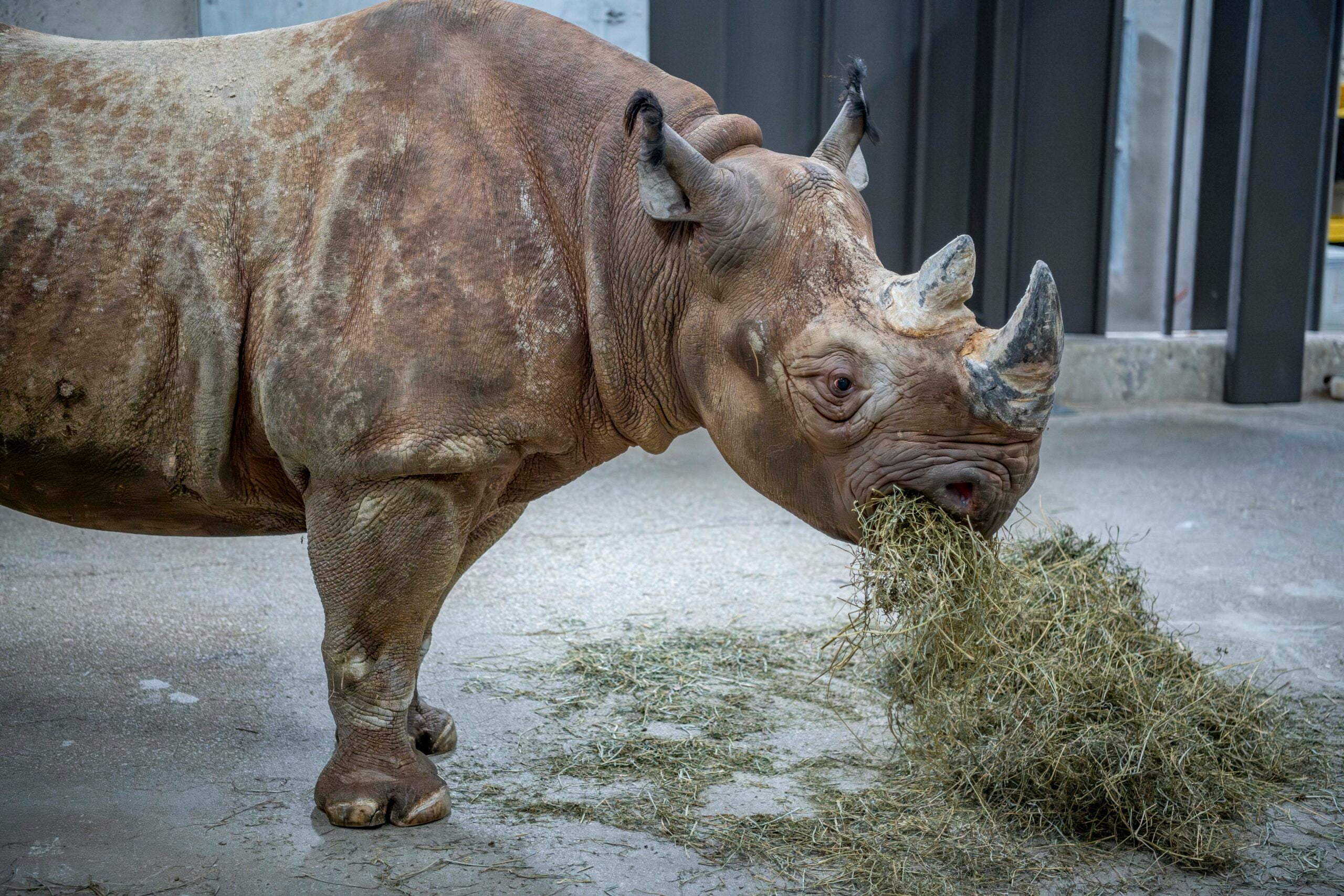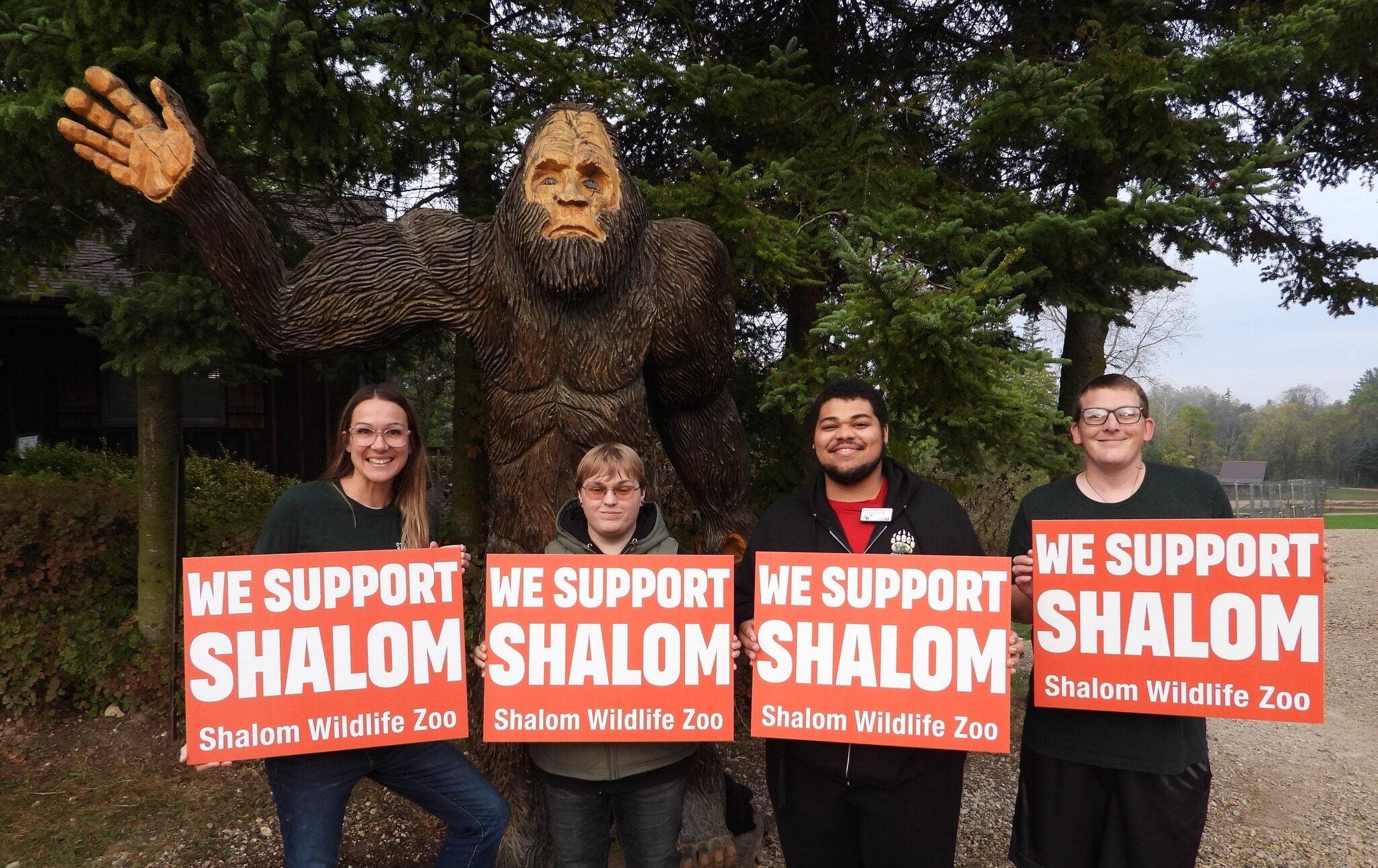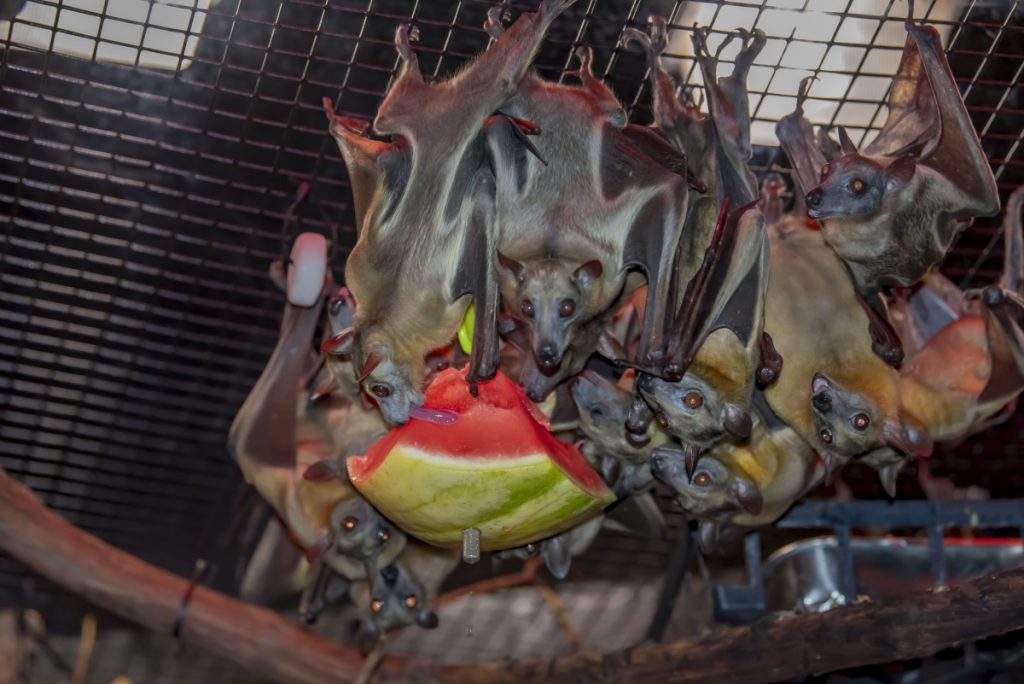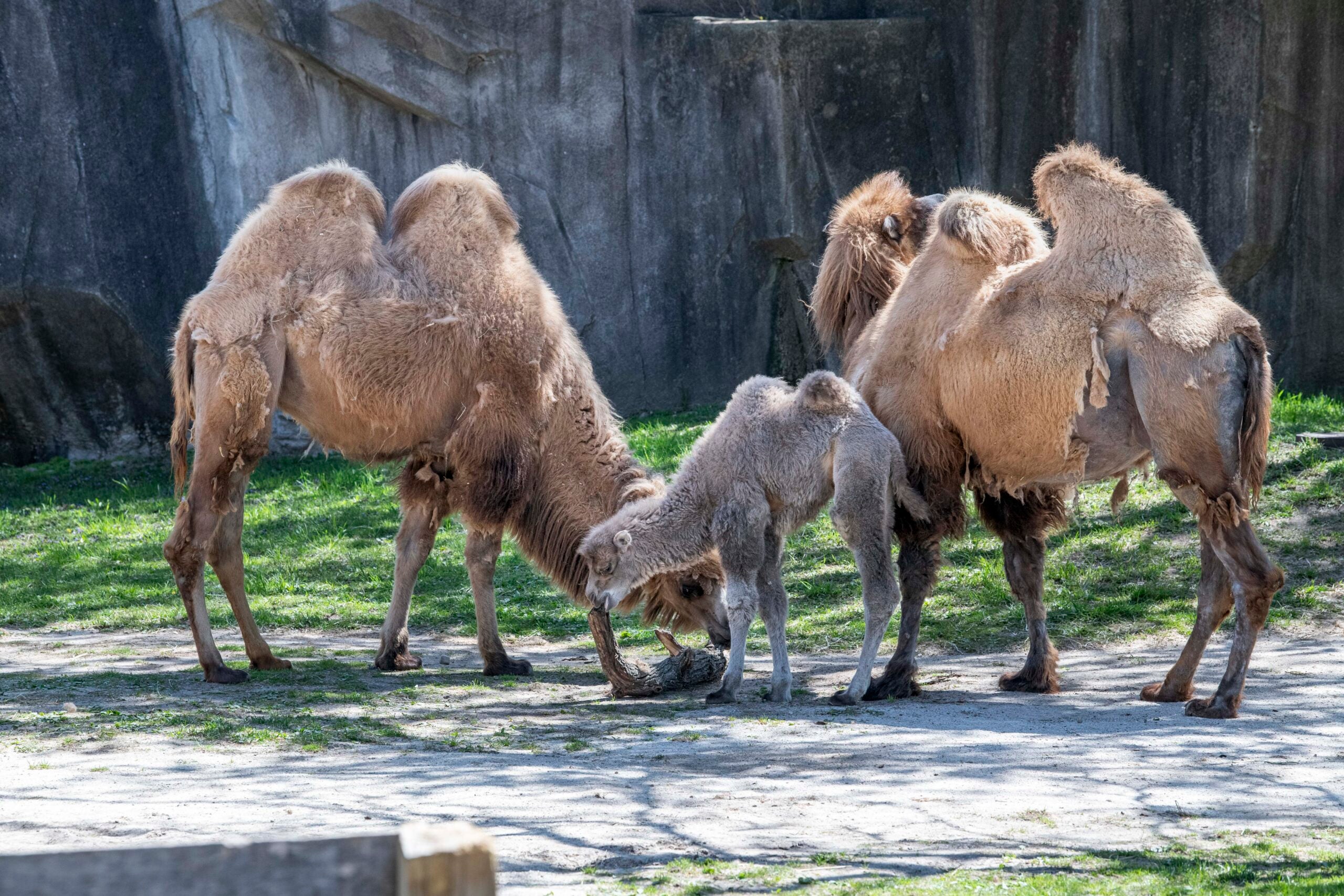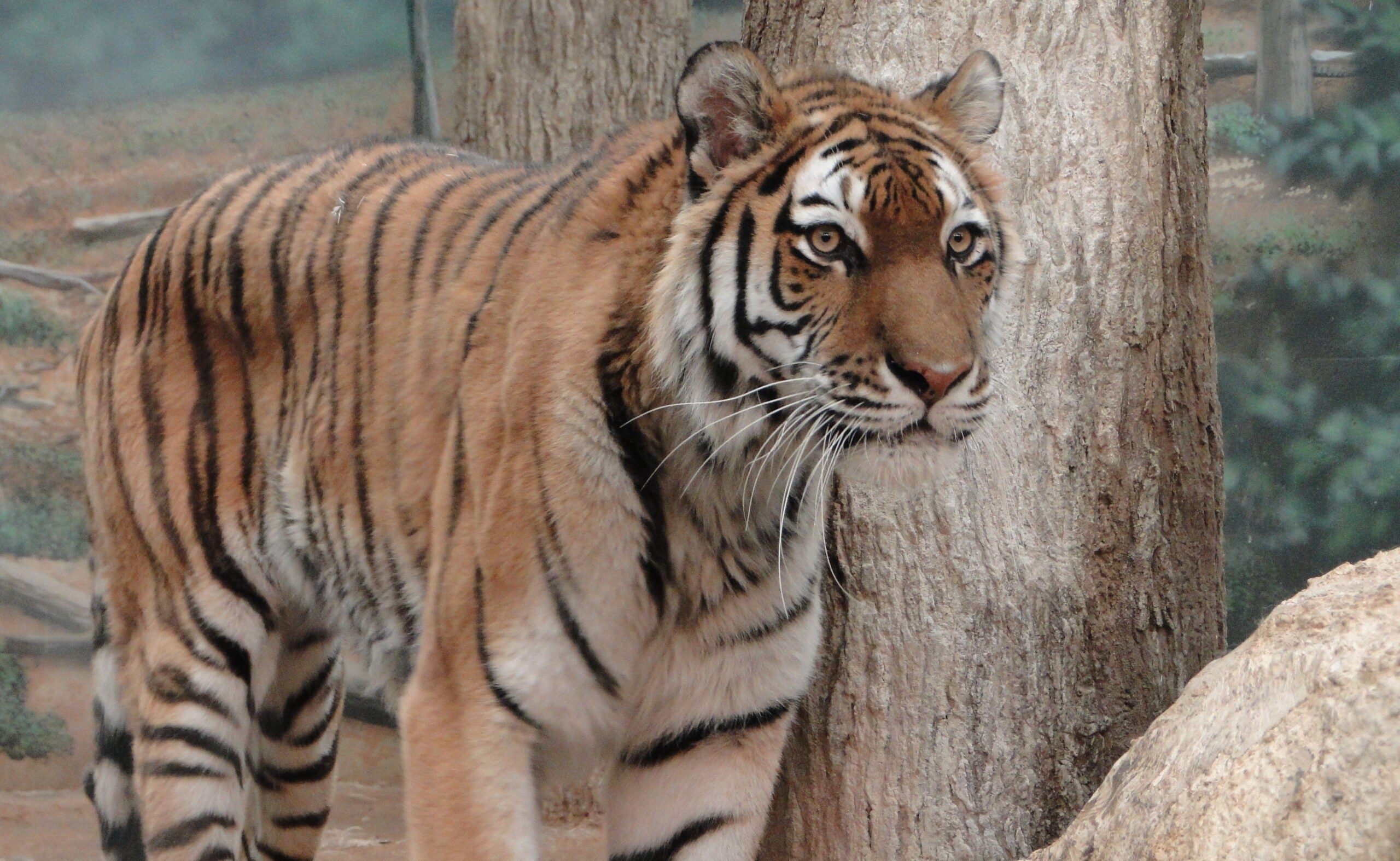Wildwood Zoo in Marshfield is a hidden gem in the heart of the state, offering visitors the chance to see North American wildlife up close without the expense of a ticket.
But running a small zoo comes with unique challenges, from tight budgets to the logistics of caring for animals year-round in Wisconsin’s harsh winters. Despite these hurdles, Wildwood Zoo has found ways to thrive, serving as both an educational resource and a beloved community attraction.
In an interview on “Morning Edition,” Zoo Director Kyle Kirk told WPR’s Shereen Siewert that Wildwood purposely limits their species to animals well-suited to the region, such as a rare pair of twin Kodiak bears, along with wolves, lynx, bald eagles, buffalo and prairie dogs, among others.
News with a little more humanity
WPR’s “Wisconsin Today” newsletter keeps you connected to the state you love without feeling overwhelmed. No paywall. No agenda. No corporate filter.
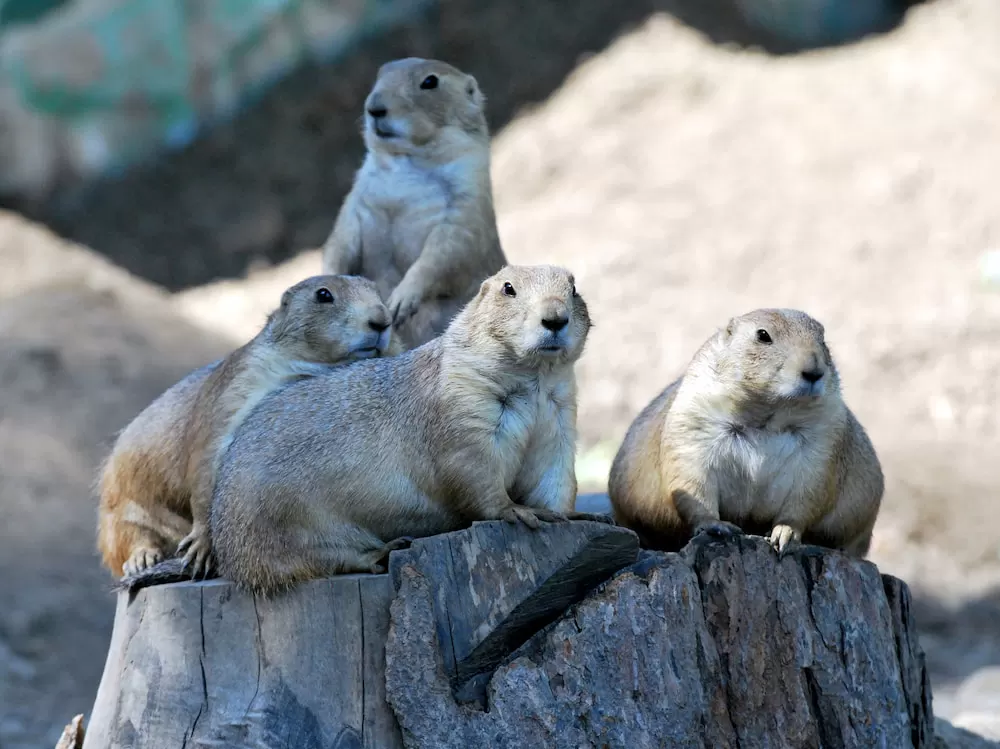
“When we get into some of those more exotic animals, like kangaroos or African crowned cranes, we really have to think about where they’re going to go in the winter,” Kirk said. “They’re really not built to survive the Wisconsin winter.”
Unlike larger zoos funded by private zoological societies, Wildwood operates primarily on donations, city support and creative budgeting. The organization fosters conservation awareness while educating visitors about wildlife native to North America, while keeping an eye toward the ethical considerations involved in keeping animals in captivity.
“The welfare of our animals is always our top priority,” he said. “We’re giving people the opportunity to connect with wildlife they might never see otherwise.”
The following interview was edited for brevity and clarity.
Shereen Siewert: When did you first know that you loved animals?
Kyle Kirk: That definitely comes with the territory of this job. Since I was a just a little kid, I’ve had the utmost respect and admiration for animals, and that interest just kind of cued me into a lifelong journey asking questions of what and why animals do the things that they do. I’ve been around animals my whole life, and I just think they’re really neat.
SS: Tell me about the range of animals you have at the zoo.
KK: At the Wildwood Zoo in Marshfield, we have approximately 60 animals, all North American. We have everything from a small tiger salamander native to Wisconsin all the way up to Kodiak bears native to Kodiak Island in Alaska.
Because we focus on animals from the North American continent, we have a lot of animals that people are familiar with and can learn more about.
SS: As a small community-funded zoo with free admission, what are some of the biggest challenges you face?
KK: I think that there’s just a general disconnect with the public these days.
Animals are no longer mysterious things that you only read about in books. They enter our homes through animal documentaries and through podcasts, and in many different ways, so the entertainment factor of a small community zoo isn’t quite what we’d like it to be.
It’s really about bringing value to the community and focusing on conservation in our rural area of central Wisconsin.
SS: Talk a little bit about the impact the zoo has on the local economy.
KK: In Marshfield, we have just a few areas to pull tourists through such as the Central Wisconsin State Fair and the Round Barn, and our small Wildwood Zoo.
The great thing about the place is that there are just three Kodiak bears in the lower 48, and we take care of two of them in Marshfield. The other is in Toledo.
For being a small, free zoo, you can come and see animals that you really can’t see anywhere else in the area and learn new things about local animals. We do have some ideas about bringing in additional animals in the future, possibly some new birds.
We also welcomed in some skunks and porcupines this past fall and we’ve cohabitated them. That means two skunks and two porcupines are living in the same enclosure and it’s really fun to see them interact. The real positive that zoos bring to the modern era is the education aspect, which is an extremely important part of what we do.
The animals are in small enclosures, and they can be depressed by that. When you get a couple of generations away from the wilderness, animals start to lose their wild behaviors. As a zookeeper, I’m feeling those thoughts every single day, so a big part of my job is just to engage the animal and teach people, showing the animal’s natural actions the best way that we can.
Keeping animals in enclosures has to be for a greater purpose. The animals sacrifice by living in captivity their whole lives, and that’s why we educate youth about them. Otherwise, there would be no reason to have a zoo in the first place.
SS: How do you respond to concerns about the ethical implications of keeping animals in a zoo?
KK: In the perfect world, there would be no animals in captivity, right? Our zoo is full of rehab animals, those that can no longer survive in the wild. By giving those animals a chance to live their life to the fullest and educate people about them, we have to think that their sacrifice is worth them living in captivity their whole lives.
I am an animal person. The things that keep me up at night are thinking about all the ways that we can make the lives of these animals at the zoo better. The world will continue to cut down rainforests and unless anything really changes, I think zoos should act as a biological preserve for creatures that would otherwise not survive in the wild.
Having these animals in captivity brings value in the education of youth and the public, and that will ultimately help their counterparts in the wild.
If you have an idea about something in central Wisconsin you think we should talk about on “Morning Edition,” send it to us at central@wpr.org.

